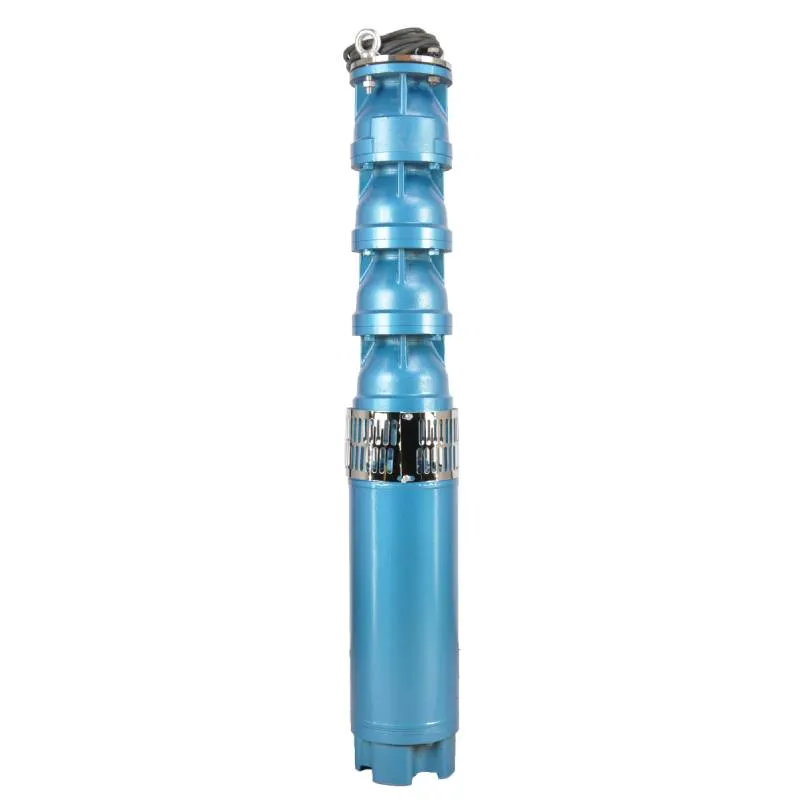Dec . 11, 2024 17:18 Back to list
Submersible Pump 1 to 4 Horsepower Options for Efficient Water Management Solutions
Understanding Submersible Pumps A Focus on 1 to 4 HP Models
Submersible pumps have become integral in various applications, ranging from residential water management to large-scale industrial processes. The versatility and efficiency of these pumps make them an essential tool for many industries. In this article, we will explore the features and benefits of submersible pumps, particularly focusing on models with power ratings from 1 to 4 horsepower (HP).
What is a Submersible Pump?
A submersible pump is a device designed to be submerged in fluid. Unlike other types of pumps that are usually installed above the fluid source, submersible pumps operate below the surface. This design allows for efficient fluid transportation, making it ideal for applications such as dewatering, well drilling, and sewage management. The motor of a submersible pump is sealed within a waterproof casing, protecting it from damage while enabling it to function effectively underwater.
Power Ratings 1 to 4 HP
Pumps within the 1 to 4 HP range are commonly used for residential and commercial applications. Selecting the right horsepower for your needs is crucial; these pumps are strong enough to handle various tasks without being overly powerful for small jobs.
- 1 HP Pumps Ideal for smaller applications such as sump pump systems or residential water wells. They can efficiently handle moderate amounts of water, fulfilling the needs of a single-family home or a small garden.
- 2 HP Pumps These pumps are versatile, suitable for larger residential properties, agricultural use, or small construction sites. With improved flow rates, they can manage trickier tasks, such as drawing water from deeper wells or draining larger flooded areas.
- 3 HP Pumps At this power level, submersible pumps are robust and can be used for demanding applications including irrigation, commercial drainage, and industrial processes. They support larger water volumes, making them suitable for medium-sized agricultural operations.
- 4 HP Pumps These pumps are powerful enough for substantial operations, including municipal water systems and large-scale industrial drainage. Their high capacity allows them to transport larger volumes of water over longer distances, making them a workhorse in various fields.
Advantages of Submersible Pumps
1. Efficiency Submersible pumps are efficient because they push water to the surface rather than pulling it, reducing energy consumption and wear on the components.
submersible pump 1 4 hp

2. Space-Saving Design Being submerged in the fluid allows for a compact installation, saving valuable space, particularly in basements or confined construction sites.
3. Reduced Noise Since the pump operates underwater, the noise generated during its operation is substantially reduced, making it less disruptive, especially in residential areas.
5. Durability With robust designs and waterproof casing, submersible pumps typically require less maintenance and are built to withstand harsh operating conditions.
Considerations When Choosing a Submersible Pump
Before investing in a submersible pump, several factors need to be considered
- Depth of Water Source Determine how deep the pump will be submerged to select a model with adequate power and lifting capacity.
- Flow Rate Consider the necessary flow rate for your application. Each pump has its specifications, and matching the right flow rate ensures efficiency.
- Fluid Characteristics Understand the type of fluid the pump will handle, including its viscosity, temperature, and whether it contains solids. This information will guide you in selecting a pump with the correct materials and design features.
- Power Supply Ensure your power supply can support the horsepower of the pump you intend to use, keeping in mind potential voltage requirements.
Conclusion
Submersible pumps ranging from 1 to 4 HP are vital components in many systems that require efficient liquid transport. Their ability to operate submerged offers various advantages, from space efficiency to reduced noise levels. By understanding the operational requirements and applications of these pumps, users can select the appropriate model that fits their specific needs, ensuring optimal performance and longevity in operation. Whether for residential use or industrial applications, the right submersible pump can pave the way for more effective fluid management solutions.
-
Submersible Water Pump: The Efficient 'Power Pioneer' of the Underwater World
NewsJul.01,2025
-
Submersible Pond Pump: The Hidden Guardian of Water Landscape Ecology
NewsJul.01,2025
-
Stainless Well Pump: A Reliable and Durable Pumping Main Force
NewsJul.01,2025
-
Stainless Steel Submersible Pump: An Efficient and Versatile Tool for Underwater Operations
NewsJul.01,2025
-
Deep Well Submersible Pump: An Efficient 'Sucker' of Groundwater Sources
NewsJul.01,2025
-
Deep Water Well Pump: An Efficient 'Sucker' of Groundwater Sources
NewsJul.01,2025
-
 Submersible Water Pump: The Efficient 'Power Pioneer' of the Underwater WorldIn the field of hydraulic equipment, the Submersible Water Pump has become the core equipment for underwater operations and water resource transportation due to its unique design and excellent performance.Detail
Submersible Water Pump: The Efficient 'Power Pioneer' of the Underwater WorldIn the field of hydraulic equipment, the Submersible Water Pump has become the core equipment for underwater operations and water resource transportation due to its unique design and excellent performance.Detail -
 Submersible Pond Pump: The Hidden Guardian of Water Landscape EcologyIn courtyard landscapes, ecological ponds, and even small-scale water conservancy projects, there is a silent yet indispensable equipment - the Submersible Pond Pump.Detail
Submersible Pond Pump: The Hidden Guardian of Water Landscape EcologyIn courtyard landscapes, ecological ponds, and even small-scale water conservancy projects, there is a silent yet indispensable equipment - the Submersible Pond Pump.Detail -
 Stainless Well Pump: A Reliable and Durable Pumping Main ForceIn the field of water resource transportation, Stainless Well Pump has become the core equipment for various pumping scenarios with its excellent performance and reliable quality.Detail
Stainless Well Pump: A Reliable and Durable Pumping Main ForceIn the field of water resource transportation, Stainless Well Pump has become the core equipment for various pumping scenarios with its excellent performance and reliable quality.Detail
